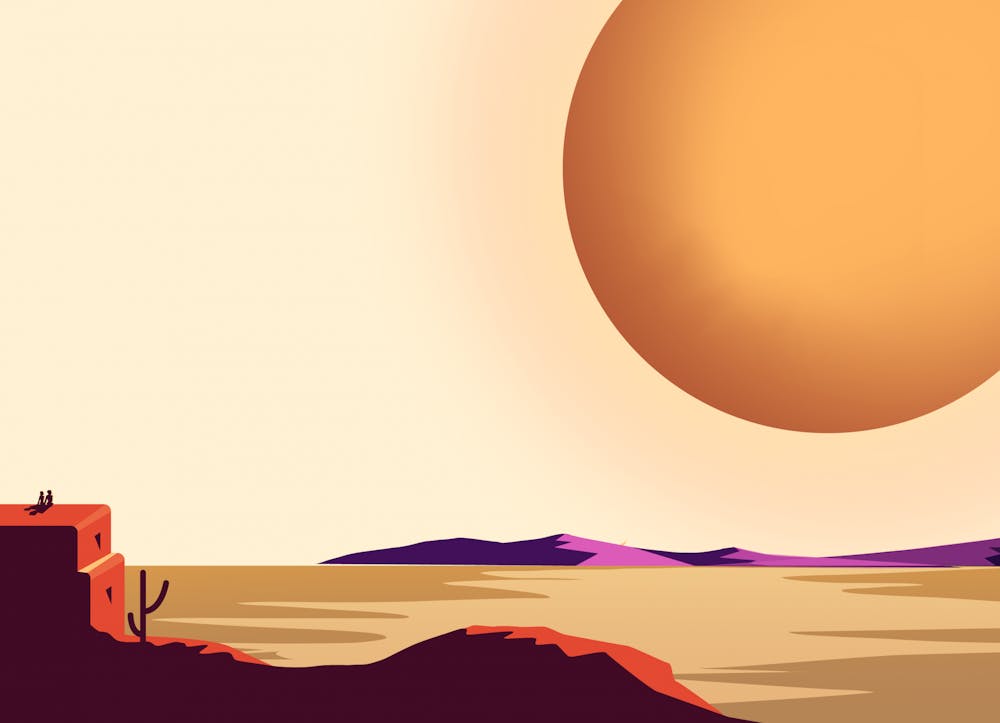The challenges faced by Native American scholars and students were the focus of the 24th annual American Indian Studies Association conference, held at ASU's Memorial Union from Feb. 1-3.
The theme of this year's conference was "Reconciliation, Reparations, Relationality," and focused on how Indigenous scholars are taught about their own communities as well as the impact of anti-critical race theory movements on American Indian Studies. The conference featured many speakers who spoke not only about how Native Americans are misrepresented in American education, but how they are often forgotten altogether.
Angie Bautista-Chavez is an ASU assistant professor at the School of Politics and Global Studies who teaches a class about the border and immigration. She expressed that despite attending Rice University and Harvard University, she had a limited understanding of Indigenous and Native American history and had to learn much of it at ASU in order to properly teach her subject.
During the conference, she spoke on a panel about her previous lack of education surrounding the Indigenous community.
"I realized how limited I was; I had neglected Indigenous perspectives on borders," Bautista-Chavez said. "I had to look back on how I was doing research on the United States border and unlearn and retrain myself to study all perspectives of U.S. politics on borders."
Harrison Yazzie is a senior majoring in political science and American Indian studies and is a member of the Navajo Nation. During a five-person panel at the conference, Yazzie spoke of their experience with a professor playing a video in class that they found personally offensive.
"One time this professor put a video on in class that had misrepresented information about Indigenous people, portraying them as savages," Yazzie said. "I wish the professor would have mentioned a trigger warning prior to playing it. The video made me scared to talk."
Another student who spoke on the panel, Marcil Roanhorse, a junior majoring in American Indian studies and a member of the Navajo Nation, said she has been able to connect with her heritage through her work.
"Ever since taking my first AIS class, it really made me a better person. I relearned my language and culture and I don't feel empty anymore," Roanhorse said.
Previously, Roanhorse said she had not had the chance to learn anything about the Indigenous community and its history until she took an Indigenous studies class at ASU.
Roanhorse and the other panelists expressed disappointment with the education system, stating that as a whole, Indigenous history isn't well represented in the Arizona community. For example, as students in the conference mentioned prior, students in Arizona have to take steps of their own to learn about Indigenous history.
Jerome Clark, who is Diné, is an assistant professor at the School of Humanities, Arts and Cultural Studies. At the panel, he discussed how his personal experience allows him to relate to and be more understanding of his students, most of whom come from an Indigenous background.
"As professors, we should respect students because they need to succeed in their personal life as well as the classroom," Clark said.
While much of the Indigenous experience isn't widely recognized in the education system, part of the motivation for Indigenous students in the classroom is to keep the legacy of their ancestors alive, such as in Yazzie's case.
"We have to keep going, because if our ancestors did it then so can we. As Indigenous people, with our minds and ideas we can accomplish anything," Yazzie said.
Edited by Sadie Buggle, Reagan Priest, Sophia Balasubramanian, Grace Copperthite and Greta Forslund.
Reach the reporter at jasnelgr@asu.edu.
Like The State Press on Facebook and follow @statepress on Twitter.




